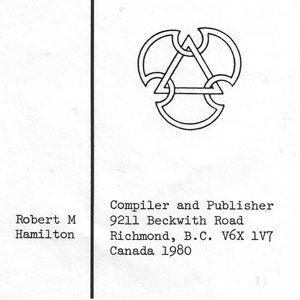
MERICLONES: Of Cymbidiums for Improved Varieties
Orchid Doctor Propagationby Robert M. [Bert] Hamilton (Compiler)
Originally published in The Orchid Doctor in 1980 and 1988
Posted by Sys Admin about 9 years ago.Article Blog Article Index
A list of 18 mericlones which have shown mutations quite different from the originals, and without the use of colchicine; they show bigger flowers of the same color, more distinctive markings,etc.; but with shorter spikes, fewer flowers, altered dates of flowering and different growth habit. AU79-140
Share on Social Media:
More The Orchid Doctor Articles under the Heading Mericlones
| Mericlones | Comments |
|---|---|
| MERICLONES: Are They All Alike? This scientific claim may not hold true in practice; perhaps natural improved varieties are possible during tissue multiplication; it may account for some of those claimed to be products of colchicine treatment. AU79-140 | 0 |
| MERICLONES: Cattleyas Have Bloomed Only 50% Recovery from poor culture sometimes takes a long time even for meristem cattleyas; do not over-water; 18-18-18 fertilizer is satisfactory for culture in rock. A75-35 | 0 |
| MERICLONES: Clonal Aberrations From one piece of tissue, after about 25,000 plantlets have been proliferated the aberration rate becomes unacceptibly high, and almost invariably in the direction of poorer quality. AU79-197 | 0 |
| MERICLONES: Grading for Quality This is necessary because there are differences and the unwary buyer can be stung; they should be graded according to whether they are original material or secondary productions from the tissue stock; growers usually do not release original material; but buyers of unthrifty third-generation material are usually dissatiafied; (that's why those wonderful cymbidium seedlings we got from Weston and those fabulous cattleyas we got from Mata Toa all had to be junked?) AU81-250 | 0 |
| MERICLONES: Mutations Not all mericlones are the same and variants appear proportional to the number produced and most of them are disappointing although oeassionally one is worthwhile and different and should not carry the original, usually awarded, variational or clonal name. A83-1294 | 0 |
| MERICLONES: Numbers of Explants Commercial laboratories usually produce only 5000 explants before mericloning the mother plant again, but if the mother plant is known to be stable the production can rise to 20,000. Au81-165; Hort. revs. 1983-296 | 0 |
| MERICLONES: Phalaenopsis Can Be Successfully Produced Growth and blooming in 36 months was achieved from phalaenopsis with thousands of vigorously growing plants but Benzyl-amino-purine (BAP) greatly increases the percentage of sports which are sold to the public; unsuspecting? A83-1150 | 0 |
| MERICLONES: Value as Stud Plants Meristem-propagated plants have the same chromosome and breeding characteristics as normal plants. A67-233 | 0 |
| MERICLONES: Why They Differ When the meristematic plant tissue is cut, some cells are cut through and most of those die but a few recover and may produce abnormal incomplete plantlets; as orchids are complex, more can go wrong. OIE87Jy-6 | 0 |
New Topics
- Al Schotz asked question Gomesa bifolia in category General Discussion
- Kjell Meershoek started topic Re-inventing an orchidarium.. your thoughts in category Curiosity
- David George asked question Odom's Fascination - an unusual orchid in category General Discussion
- Carol Holdren asked question Grow Tent in the Garage in category General Discussion
- David George asked question rlc Caotan Beauty found at Home Depot in category Cattleya Alliance
New Comments
- Kjell Meershoek commented on topic "Re-inventing an orchidarium.. your thoughts" by Kjell Meershoek
- Inga Kruppa commented on member plant Acacallis cyanea Х Paradisanthus micranthus by Inga Kruppa
- Carol Holdren commented on topic "rlc Caotan Beauty found at Home Depot " by David George
- Carol Holdren commented on topic "Odom's Fascination - an unusual orchid" by David George
- Dr. Florian Wolf commented on topic "Wild. Lisa Devos" by Maria Fernandez
- Michael Valcarcel commented on member plant Rlc. Chief Takanaka by Walceli Muniz Valverde
- Michael Valcarcel commented on member plant Rlc. Montana Spirit by Michael Valcarcel
- Michael Valcarcel commented on member plant Ctt. Blazing Sun by Michael Valcarcel
- Michael Valcarcel commented on member plant Bc. Spotted Clown by Michael Valcarcel
- Maria Skrypnyk commented on member plant Yamadara Redland Sunset by Maria Skrypnyk
- André Pessina commented on topic "Odontocidium Orchid fungus?" by Kristin Dorris
- Linda Hartman commented on topic "Image of a plant please" by Leshya Perkins
- Paul Reavis commented on orchid Milt. Kismet
- Christiaan Viljoen commented on member plant Psh. fragrans by Christiaan Viljoen
- Christiaan Viljoen commented on member plant Z. maculatum by Christiaan Viljoen
- Christiaan Viljoen commented on member plant C. Gaskell-Pumila 'Azure Star' by Christiaan Viljoen
- Robert H. Findlay commented on member plant Rlc. Joy Sokabe var. Volcano Queen by Sally K
- James Lunsford commented on member plant Lc. Sagarik Wax 'African Beauty AMO/AOS x Blc. Cherry Suisse'Kauai' HCC/AOS var. Cattlyea 'Hybrid ' by James Lunsford
- John Varigos commented on orchid Bulb. schwarzii
- Linda Hartman commented on topic "Issue with Blc. Ben O'Neil "Jubilee" by Glenda Ratliff